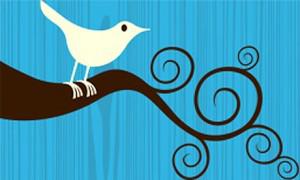
Twitter is simultaneously the smartest and dumbest thing around. I guess it isn’t unique that way; There are many communication mediums that are both very smart and very dumb. Television has produced works of transcendent genius like HBO’s The Wire, but you can also flip over to Basketball Wives if you wish. You could pick up The Economist from a newsstand, or you can leaf through Tiger Beat.
What makes Twitter different is how uncomfortably yet democratically these high- and low-brow voices share space. You can read Roger Ebert’s touching blog about his health struggles, or you can see what a shitload of people are saying about WHY YOUR SINGLE. One look at the trending topics sends me into a tailspin of despair for the state of our country, but I don’t have to pay attention to it. I can choose whose voices I want to hear. But if you remove the intellectual elements of Twitter, a sliver of its total users, what you’re left with is a medieval town square.
What Twitter essentially is, and this completely explains its populist appeal, is a gossip mill. It’s the equivalent of standing in the back of a huge crowd gathered at an accident scene. You listen to the crowd and try to figure out just what the hell happened up there. There’s nothing official about this method of information dissemination, and there’s zero accountability for falsity. “What are ya gonna do, pal? I’m just tellin’ ya what I heard.” It’s the most typo-filled game of telephone in world history. But the hive-mind of Twitter can sometimes have an uncanny finger on the pulse of events.
There’s no better example of this than the night that President Obama announced that Osama bin Laden had been killed. Twitter somehow amplified the importance of that story. Even the peanut gallery has its day in the sun, I suppose. But it’s that kind of mass movement and uniformity of thought that makes me so uncomfortable with Twitter, despite the fact that I use it frequently. (In fact, you probably arrived at this story by clicking on a link that I tweeted.)
Twitter is most often used as a platform for one of two things: cheap jokes or boundless narcissism. It lends credence to the thoughts of people who probably should never, ever have their thoughts heard. This kind of everyone’s-vote-counts-the-same populist mentality can lead to great and bizarre historical moments like the night bin Laden was killed, but it can also lead to #reasonstobeatawoman becoming a trending topic. (This being the ugliest moment I’ve yet seen on Twitter.) Is this platform, where that sort of heinous behavior is not only allowed, but apparently wildly popular among the platform’s users, really the future of journalism? Or the future of anything? If it is, we need to look in the mirror.
Twitter isn’t news, and it isn’t journalism. It’s people chasing history and news, commenting on it after the fact. Trending topics aren’t so much the important subjects of the day as they are cannon fodder for whatever easy jokes the Twitter ranks can cook up. It’s profoundly disheartening how much importance mainstream media gives to Twitter by pleading with people to tweet to shows with comments, questions, etc., and even covering what’s trending. If Twitter is endlessly chasing the mainstream media by re-appropriating its original reporting and work and then commenting on it or spinning it as it sees fit, what happens when the mainstream media starts chasing Twitter? It’s the age-old danger of populism, a danger Tocqueville once described as “the tyranny of the majority.” The inmates already run the Twitter asylum. Let’s not let them loose.
